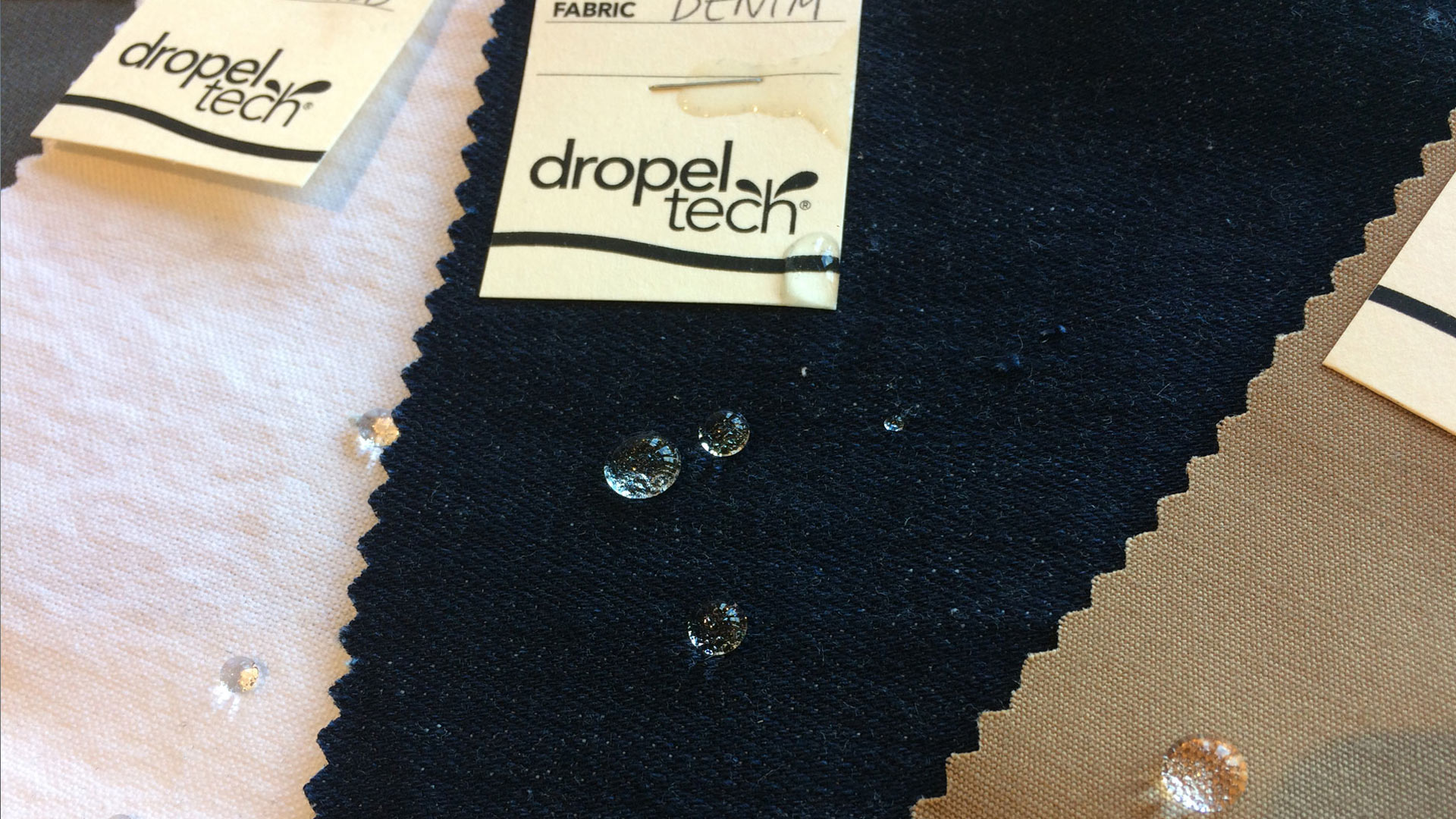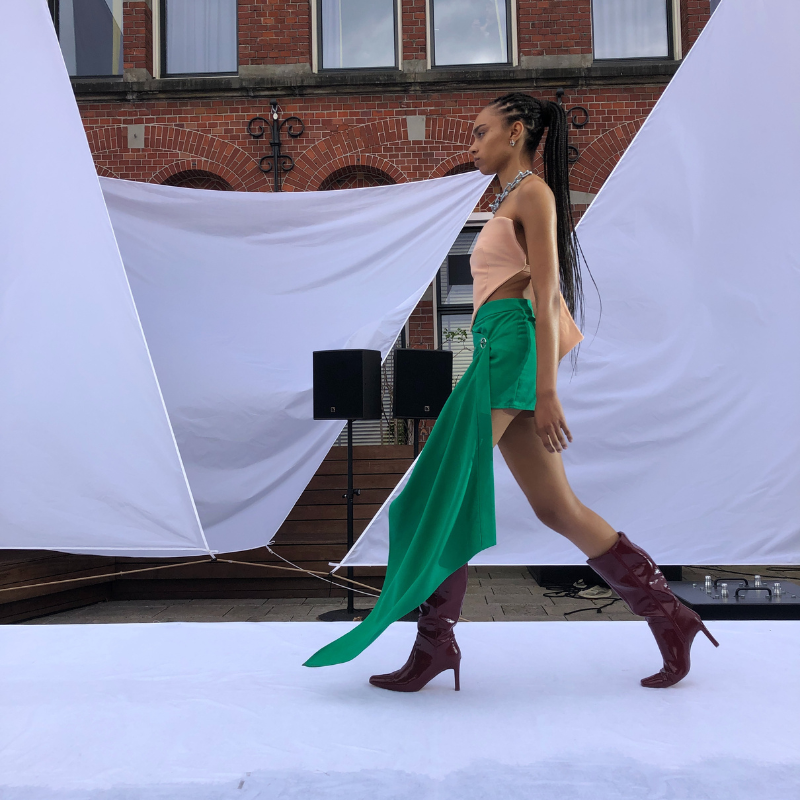03 Aug Fashion for Good: Startups revealed!
With successful businesses on board, such as Kering and C&A, everyone was thrilled to be part of the first edition of the Fashion for Good – Plug and Play accelerator.
The accelerator aims to boost the development of startups and is part of the international initiative Fashion for Good, while partner Plug & Play calls itself the world’s largest startup accelerator. About three months after launch March 2017, the inaugural batch of startups ‘graduated’ from the programme. Time to ask the startups the vital question: how was it?

Fashion for Good museum in 2020
MycoTex
Aniela Hoitink is the owner and creator of MycoTex, a producer of mycelium-based (the root of a mushroom) textiles. This biomaterial is still under development, but stands for a new way of producing clothes. It can be shaped in any form, eliminating the need for spinning yarns, weaving and sewing garments and has tons of other benefits. For example, your clothes can be composted after use.

Q: Following the accelerator programme, is MycoTex market ready?
A:
“Not yet, the material is still too fragile for daily use. Research is needed to further develop it. The accelerator gave me valuable insights on how to make MycoTex market ready. Is fashion the right product to start off with? Why not start with an ‘easier’ product, for example accessories? I started experimenting with that and developed a wallet of MycoTex. Responses so far are quite positive! And dyeing was always high on the development list, but during the accelerator it became even more clear that colour is really important to get brands interested in the material.”
“The accelerator gave me valuable insights on how to make MycoTex market ready”
– Aniela Hoitink, NEFFA (MycoTex)
RePack
Repack was born out of the owners’ frustrations with packaging generating so much waste. Now, they are in the business of making packaging more sustainable by focusing on a circular model. Jan Berbee is packaging consultant and picked up on the startup. Impressed by the concept, he joined RePack.
The RePack concept explained in less than a minute
Q: Looking back, what was the added value of being in this accelerator?
A:
“The access to experts and a network we didn’t have before. Fashion for Good opened doors to new potential clients, gave guidance on how to close a deal and how we could improve our pitch to investors. I also feel it helps that you can say you’re part of this programme, which is supported by such big names in the industry. And while being in the accelerator, the feeling became stronger that now is time to not only grow in fashion, but also start exploring other industries to introduce the concept of RePack. It will be one of our next steps now the accelerator has ended.”
“Being part of this programme helps in more ways than you can imagine”
– Jan Berbee, member of RePack
Dropel
Co-founder and CEO Sim Gulati has a drive to combine science with fashion. And he does just that with a small team at Dropel. As their first product, the startup adds stain-repelling, antimicrobial, and other functional properties into natural fibers. This can be cotton or jeans, while the look and feel remain the same. This way your clothes last longer and stay clean – it even repels red wine from your favourite white shirt!

Q: Did you reach your goal during the accelerator programme?
A:
“Our goal when joining the accelerator was to better understand how we can work with retailers and further define our sustainability mission and impact. Overall with the program and accelerators in general, it’s really about what you put in, you get back. For us, two important takeaways were on how to measure sustainability and rules and regulations your product should be compliant with, in order to be interesting for big brands and learning how to integrate with retail supply chain. The programme also broadened our network. Quite some (big) brands are interested, we’re excited about pilot programs that will come out of it”.
“Go in with an open mind and learn as much as you can from industry leaders”
– Sim Gulati, CEO of Dropel
All startups in the first batch were Agraloop, Amadou, Dragon, Dropel, ICA Bremen, MySource, MycoTex, Pili-bio, RePack, Sundar, Tersus and Tipa. Some of the startups will qualify to receive an extra boost to scale-up their sustainable innovations and receive between $25,000 to $75,000 in funding.

The next batch
Now the first batch of startups have graduated, the startups for the next edition have been selected and eager to start this September. From over 200 startups 19 were invited to pitch at Selection Day mid-June, held at Fashion for Good in Amsterdam’s city centre. Last week Fashion for Good announced the 10 lucky startups who will enter the second edition of the accelerator. Also new to this second edition, is partner Galeries Lafayette Group.
All startups in the second batch: Carcel, Colorfix, Circular Systems, Ecofoot, Econ.ID, LiteHide by LeatherTeq, Nature Coatings, Normn Hangers, SpinDye, A Transparent Company.
Visit the Fashion for Good website to find out more about the accelerator, other projects and meetups.
Meer verhalen
Wist je dat er bacteriën zijn die textiel kunnen verven? In tegenstelling tot de huidige textielverven, hoeven voor ‘bacterial dyes’ geen toxische chemicaliën gebruikt te worden.
Stijlcoach Victorien van Duuren bezocht voor ons Amsterdam Fashion Week. "The Philosophy of a Circular Mind was echt mindblowing'!"
Het internationale karakter van de mode-industrie maakt het geven van transparantie en voorkomen van milieuschade niet gemakkelijk. Wat nu?
Doordat de populariteit van het veganisme groeit, gaan modebedrijven op zoek naar vegan materialen. Maar zijn deze materialen ook duurzaam?
Leslie Holden, part of the MT of Amsterdam Fashion Institute, realised sustainability can no longer be just part of the curriculum. It must be leading.
Haar visie is helder. José Teunissen wil van de School of Design and Technology aan London College of Fashion ‘s werelds meest innovatie modeschool maken.
Slow fashion brand Teym maakt klassieke mode-items van mooie kwaliteit en met een goede pasvorm. Kortom: ze zitten zo lekker... dat je ze afdraagt.
De meest gebruikte stof in de duurzame mode-industrie is toch wel ‘biologisch katoen’. Maar hoe duurzaam is biologisch katoen?
For years Hanh had her own wholesale business in the fast fashion industry. Now, she's determined to get fashion rental business WAUWcloset off the ground.
"Wil je vernieuwing in je kast? Kijk eerst naar de kleding die je al hebt." Een interview met style coach Chiara Spruit.
We staan met zijn allen ervoor open om duurzame kleding te kopen. We zijn zelfs bereid om er meer voor te betalen! Deze feiten worden bevestigd door meerdere onderzoeken. Echter, in praktijk…
Op 22 en 23 mei cureerde we een mini-tentoonstelling over 'Wat dragen we in de toekomst' voor het Innovatiefestival van De Nederlandsche Bank.
Slow nieuws & events
Omdat offline leuker is dan online, organiseren we kleinere en grotere events om elkaar te ontmoeten. Via onze maandelijkse nieuwsbrief houden we je op de hoogte - samen met het laatste nieuws over duurzame mode en onze merken.











